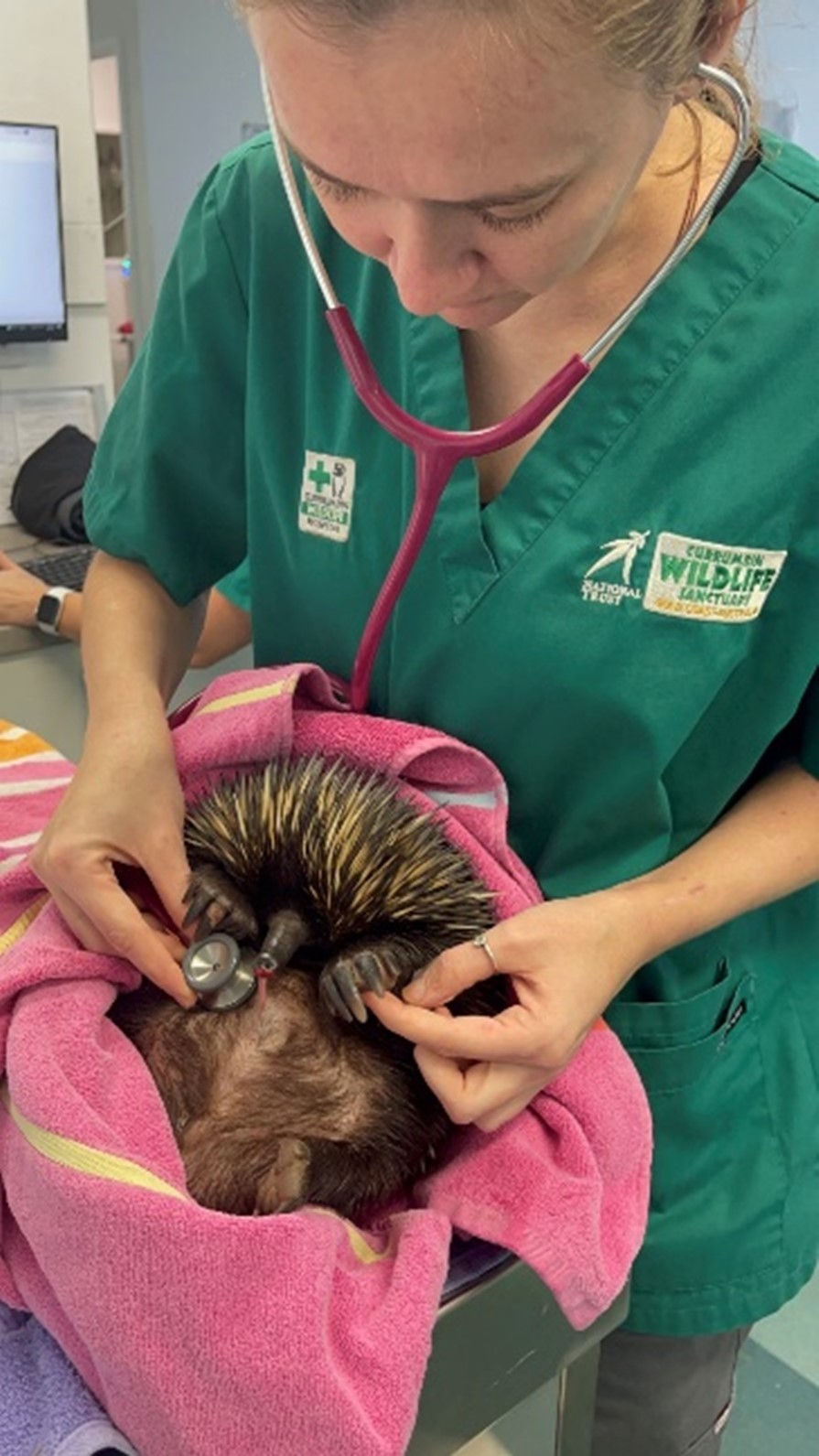Watch out for Echidnas this Winter
We have had an influx of echidnas that have sadly been hit by cars. This is common during Winter as it is breeding season for echidnas, and they are on the move.
It is vital that you call Currumbin Wildlife Hospital if you spot any sick, injured, or orphaned echidnas. You never know when a baby echidna puggle may be in the pouch! Puggles usually spend 7 weeks inside Mum’s pouch.
We can save lives, but time is of the essence so please report immediately or bring into the vet team at Currumbin Wildlife Hospital. It’s also important to record where the echidna was found in the event, she may have young in a burrow.
Interestingly, trains of echidnas may be seen during Winter, these trains are usually led by the female, and she may be followed by up to 10 males. The male who remains closest to the female during the courtship period, may have a chance to breed with the female.
The Short-beaked echidna featured here with Vet Nurse Natasha Graham is named Bobby. This little one was sadly hit by a car and is suffering from a beak wound. Our vet team will treat Bobby and then this echidna will stay in rehab or foster care until release back into the wild.
Echidnas may be cute, but they mean business! These creatures are known as ‘ecosystem engineers’ as they spend an incredible amount of time digging and moving soil. Through the turning of the soil, it improves soil mixing and penetration as well as reducing run-off and erosion. This results in healthier soils, which can lead to plant growth.
We need to save echidnas so they can keep saving our environment – it’s a cycle! Help us save precious ecosystem engineers by donating today.

